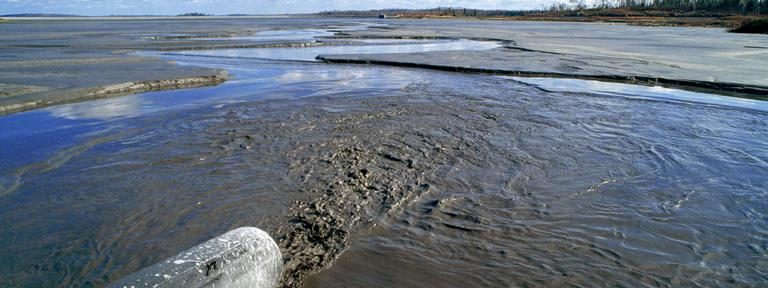6 Critical Challenges Shaping the Future of Industrial & Municipal Effluent Treatment

Municipalities and industrial organizations alike, in today’s day and age face a number of challenges both old and new. Many of these challenges involve the use of water in varied processes and the subsequent water or wastewater treatment. A few of them are typical, everyday things that all these organizations deal with. However, these things are tied to others that will shape the future of effluent treatment, if not the future of the world. Inevitably, it all comes down to how we use and treat water and how that affects the environmental water sources around us.
Here are six critical challenges shaping the future of effluent treatment for organizations and municipalities….
Decreasing Operational Costs
Money is always a big issue in any municipality or organization. Organizations typically have to spend money to make money, so many of them find ways to try to optimize operating costs. Reducing those costs could come in the form of lower power usage, fewer or less expensive process materials, or lower labor costs. For an effluent treatment system, this could mean less necessary maintenance and decreased disposal costs on top of the associated operating costs.
Optimize, Optimize, Optimize: Improving Efficiency
Hand in hand with lower operating costs is the need for efficiency. As with many things in life, there is always room for improvement when it comes to water treatment efficiency. The power consumption could be lower, the removal rates could be higher, the equipment could run at peak performance for longer periods. If the efficiency of specific water treatment systems are optimized, the efficiency of the entire effluent treatment process could increase and lower operational costs.
Stricter Environmental Regulations
Environmental protection is being pushed more and more, decreasing the amounts of harmful pollutants that are being discharged into waters around the world. Wastewater regulators are adding contaminants to their list and steadily dropping the acceptable concentrations of these contaminants. This happens as new facilities are built and discharge new pollutants into our waterways that are later discovered to be harmful to plant and animal life as well as human health.
Water Scarcity and the Push for Reuse
We are told that water is a renewable resource, but at the rate we use water — for everything from drinking to washing to product production — it can’t replenish itself fast enough. Even in places with plentiful freshwater sources, this could eventually become an issue. In places where freshwater sources are far and few between, water scarcity is very much real. Therefore, it is important that water reuse becomes even more widely used than it currently is. This aids in the sustainability of our natural resources. Reusing treated wastewater would be a big aid in the battle against water scarcity. By treating wastewater and then reusing it either in the same process, another process, or using it externally in another place, raw water consumption can decrease overall. This provides added benefit of lowering costs for industrial and municipal organizations because they can offset the cost of procuring new freshwater sources for non-potable and non critical applications.
Changing Technology
In the effort to improve efficiency and decrease operating costs, water treatment technology is almost constantly changing. However, most water treatment plants and systems are constructed with the intent of lasting for decades. Having an effluent treatment plant that is made to last so long is wise in the sense of dependability. However, if the design and engineering of the plant did not allow for retrofitting to optimize operations, it can make it difficult and costly to take advantage of new technology.
Waste Not, Want Not: Subproduct Recovery
While there are certainly plenty of benefits brought on by simply treating water, there are even more gains to be made by recovering some of the waste products filtered out of the water. Some facilities produce lots of fat and oil that could potentially be used as an energy source. Many facilities produce sludge in their effluent treatment plants as a by-product. When properly dewatered, it can potentially be used as a soil additive to fertilizer for farms or greenhouses. Therefore, while some wastewater contaminants can be seen as purely waste by the company or municipality producing them, to someone else it could prove useful.
Meeting challenges like the ones presented above are important not only to the organizations and municipalities that face them, but also to much of the world at large.
Facing challenges alone can be difficult, but with the right help, they can be effectively dealt with. We at Genesis Water Technologies, Inc. strive to support both organizations and municipalities in their effluent treatment and reuse goals as well as the wellbeing of the environment. Our treatment media solutions, process optimization engineering services and treatment systems are designed with sustainability in mind. But, they also provide our clients with efficient contaminant removal at an optimized cost integrating the most advanced technology available.
If your organization or municipality needs help with these critical issues that are shaping our world today, contact Genesis Water Technologies at 877-267-3699 in the USA or contact us via email at customersupport@genesiswatertech.com for a free initial consultation to discuss your application.

